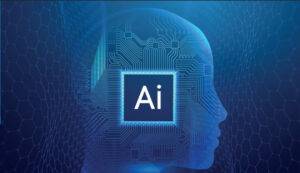Why AI-generated art can’t be copyrighted, yet

A United States District Court ruled on 18th August 2023 that AI-generated artwork can’t be copyrighted. The US Copyright Office refused a copyright to Stephen Thaler for an AI-generated image made with the Creativity Machine algorithm he’d created.
The fast-growing field of generative AI continues to raise novel intellectual property issues. The Copyright Office has also rejected an artist’s bid for copyrights on images generated through the AI system Midjourney despite the artist’s argument that the system was part of their creative process.
Facts of the case
In 2018, Thaler applied for a copyright covering “A Recent Entrance to Paradise,” a piece of visual art he said was created by his AI system without any human input. He had tried multiple times to copyright the image as a work-for-hire to the owner of the Creativity Machine, which would have listed the author as the creator of the work and Thaler as the artwork’s owner.
After the Office’s final rejection, Thaler sued the Office. In her decision, Judge Howell wrote that copyright has never been granted to work that was “absent of any guiding human hand,” adding that “human authorship is a bedrock requirement of copyright.”
Thaler also argued that human authorship is not a concrete legal requirement and allowing AI copyrights would be in line with copyright’s purpose as outlined in the US constitution to “promote the progress of science and useful arts.”
The Judge however agreed with the Copyright Office and said human authorship is a “bedrock requirement of copyright” based on “centuries of settled understanding.”
As a consequence of this ruling, a work of art created by artificial intelligence without any human input cannot be copyrighted under US law. Only works with human authors can receive copyrights.

What is copyright?
Copyright refers to the legal right of the owner of intellectual property. In simpler terms, copyright is the right to copy. This means that the original creators of products and anyone they give authorisation to are the only ones with the exclusive right to reproduce the work.
When someone creates a product that is viewed as original and that requires significant mental activity to create, this product becomes an intellectual property that must be protected from unauthorised duplication.
Under copyright law, a work is considered original if the author created it from independent thinking void of duplication. This type of work is known as an Original Work of Authorship.
In Kenya, copyright protection is vested in the work once it is in concrete form without the need for registration. The first ownership of a copyright work vests in the person who creates it. However, copyright like any other moveable property can be transferred through sale, licences and testamentary disposition. Under the Copyright Law:
- In the case of two authors, the two shall be known as the joint authors of the work.
- In the case of works created for hire or works created under a contract of employment, unless otherwise stated in a contract, the employer or the person who commissioned the work shall be the owner of the work.
- In the case of a film, the principal director and the film producer are joint authors and first owners of the copyright (and the economic rights). Similar provisions to those referred to above, apply where the director is employed by someone.
- In the case of a sound recording the author and first owner of copyright is the record producer, in the case of a broadcast, the broadcaster; and in the case of a published edition, the publisher.
- Copyright in material produced by a government department belongs to the government.
How businesses can navigate copyright and AI
For businesses that create and distribute original creative products, such as software developers or mass media companies, copyright protection is at the core of their intellectual property rights. Most other companies tend to be more concerned with trademarks and patents, although any company that produces original content, such as marketing materials, should be familiar with its rights under copyright law.
All companies need to be concerned with copyright infringement, namely, making sure that employees do not subject the company to litigation or damages through a pattern of copying copyrighted works. Even among large organisations, infringement can be common, whether by installing unlicensed software on computers or by reproducing books, articles, or other documents without permission There are a lot of misconceptions about what can and cannot be copied. Businesses may need to educate employees about copyright law and establish guidelines or policies to ensure compliance.

